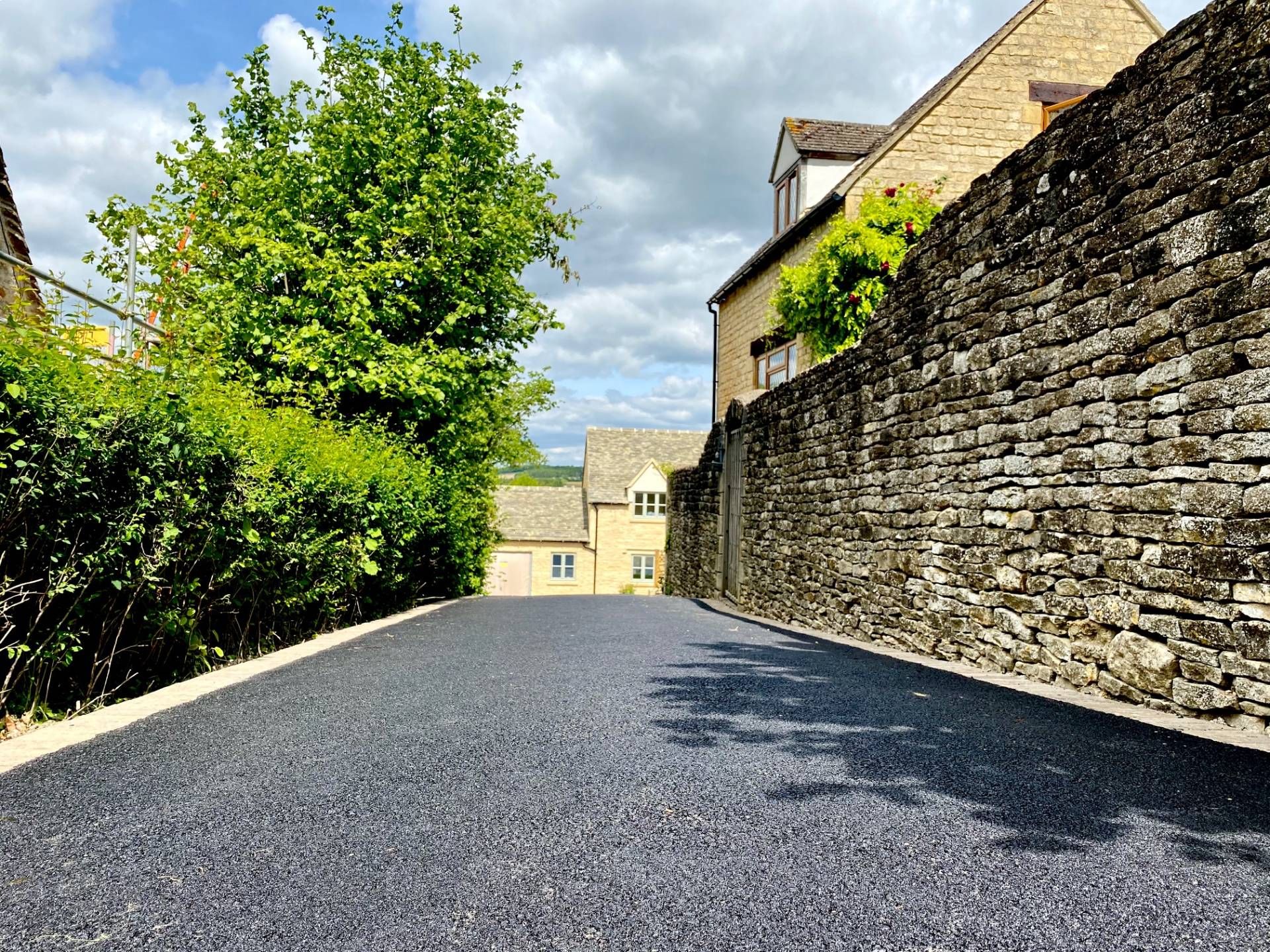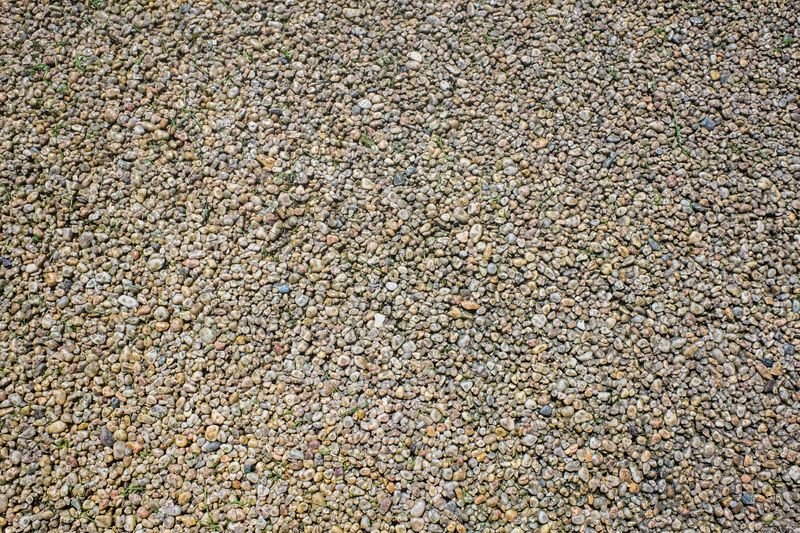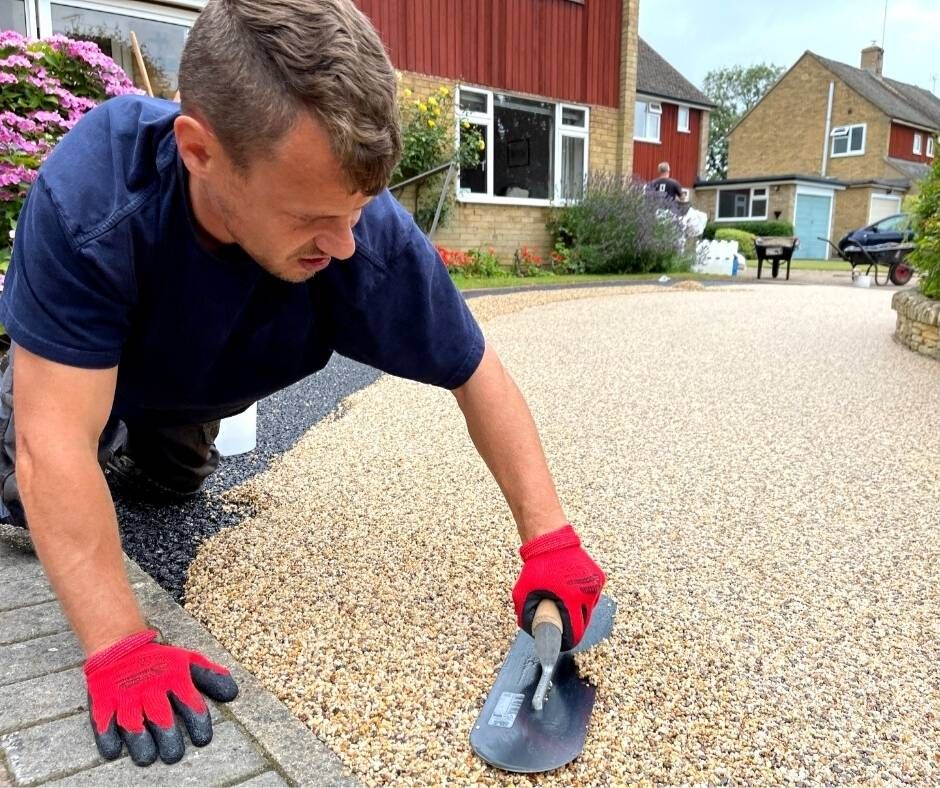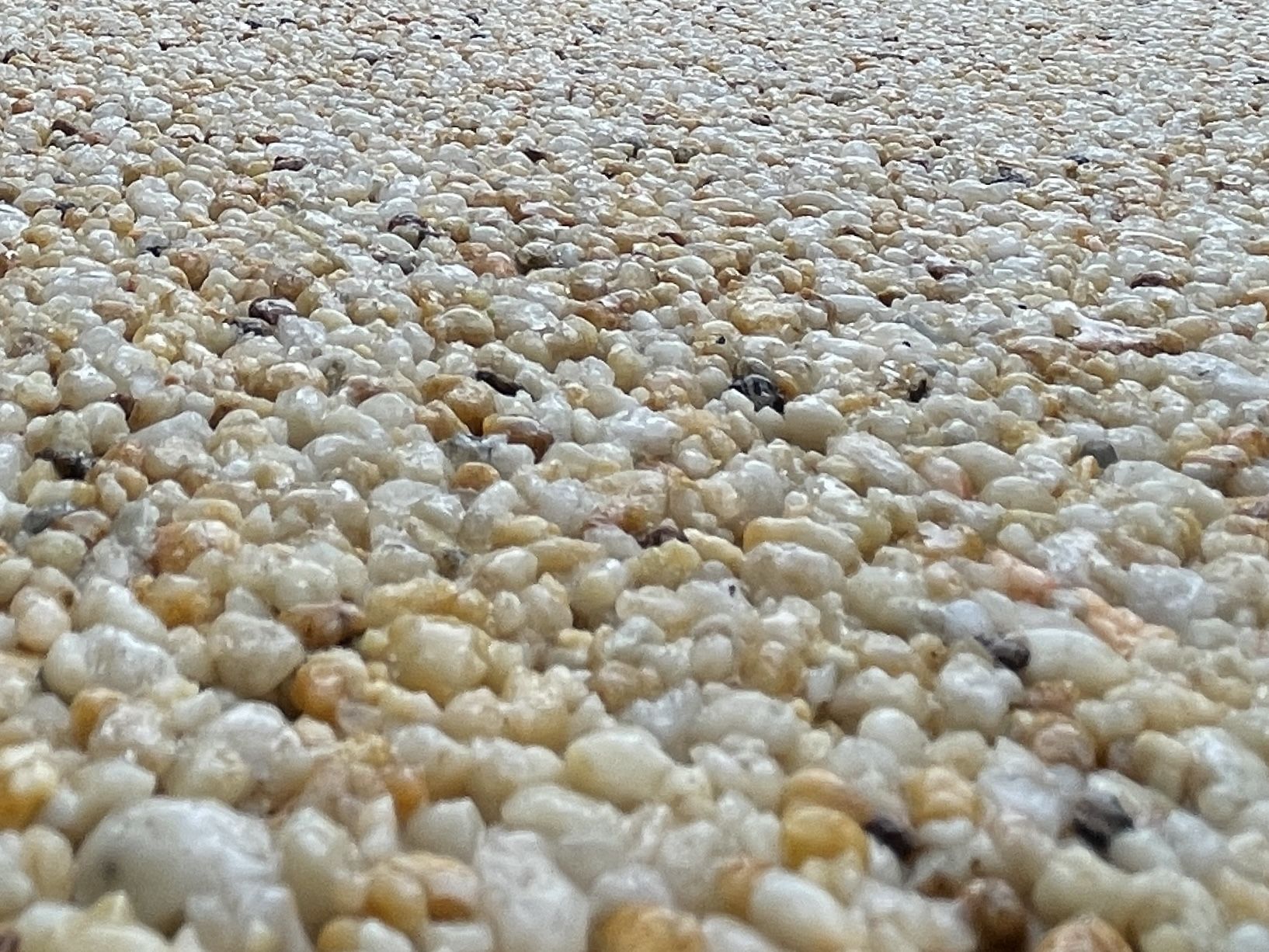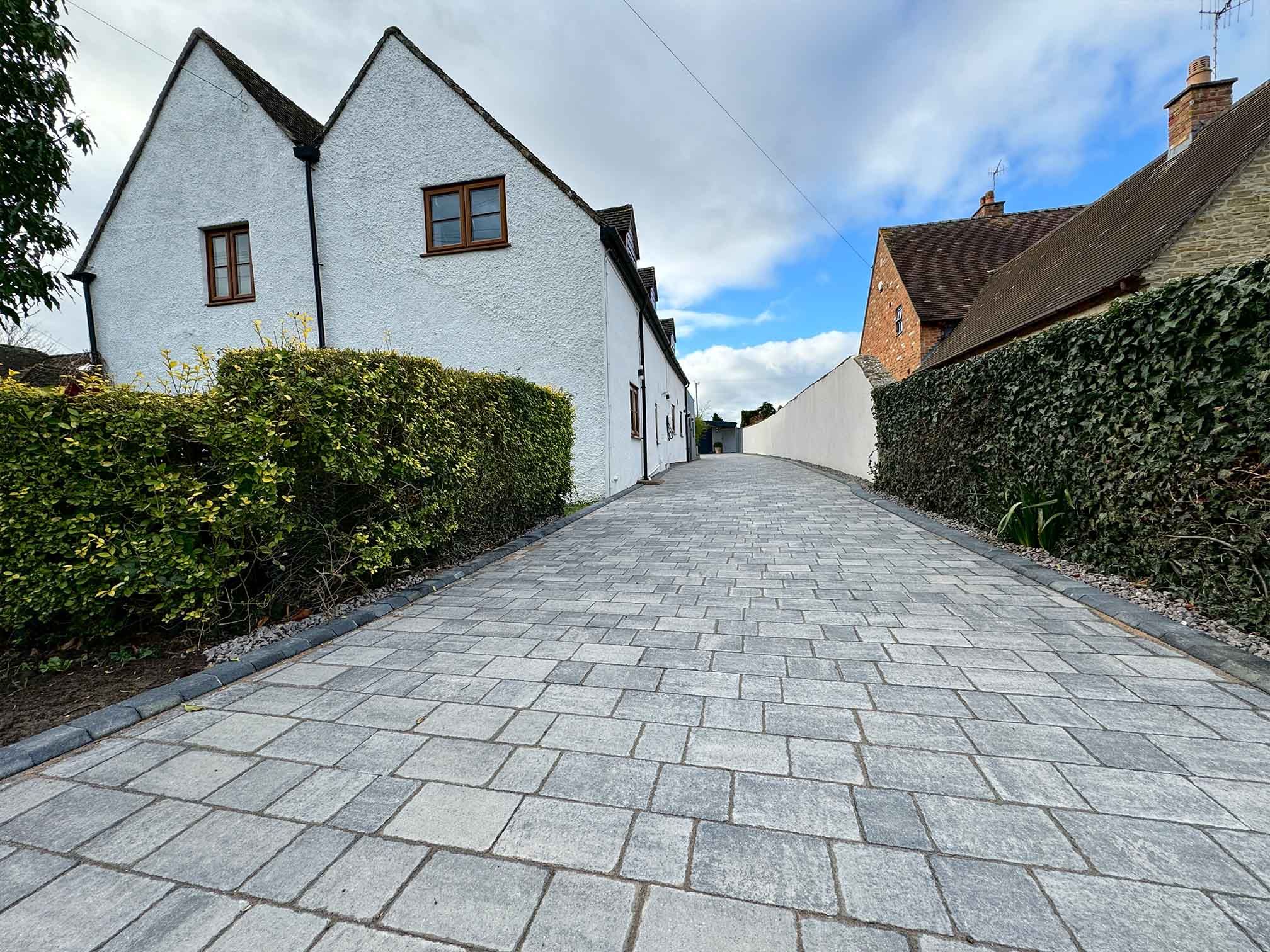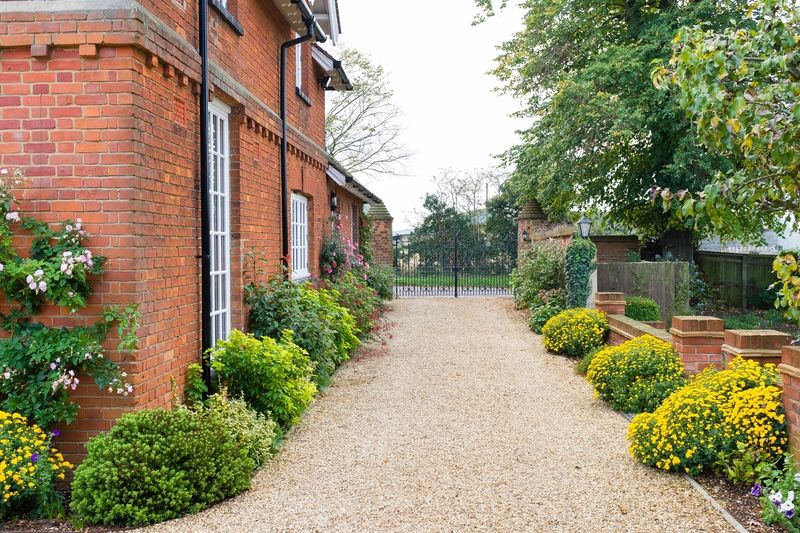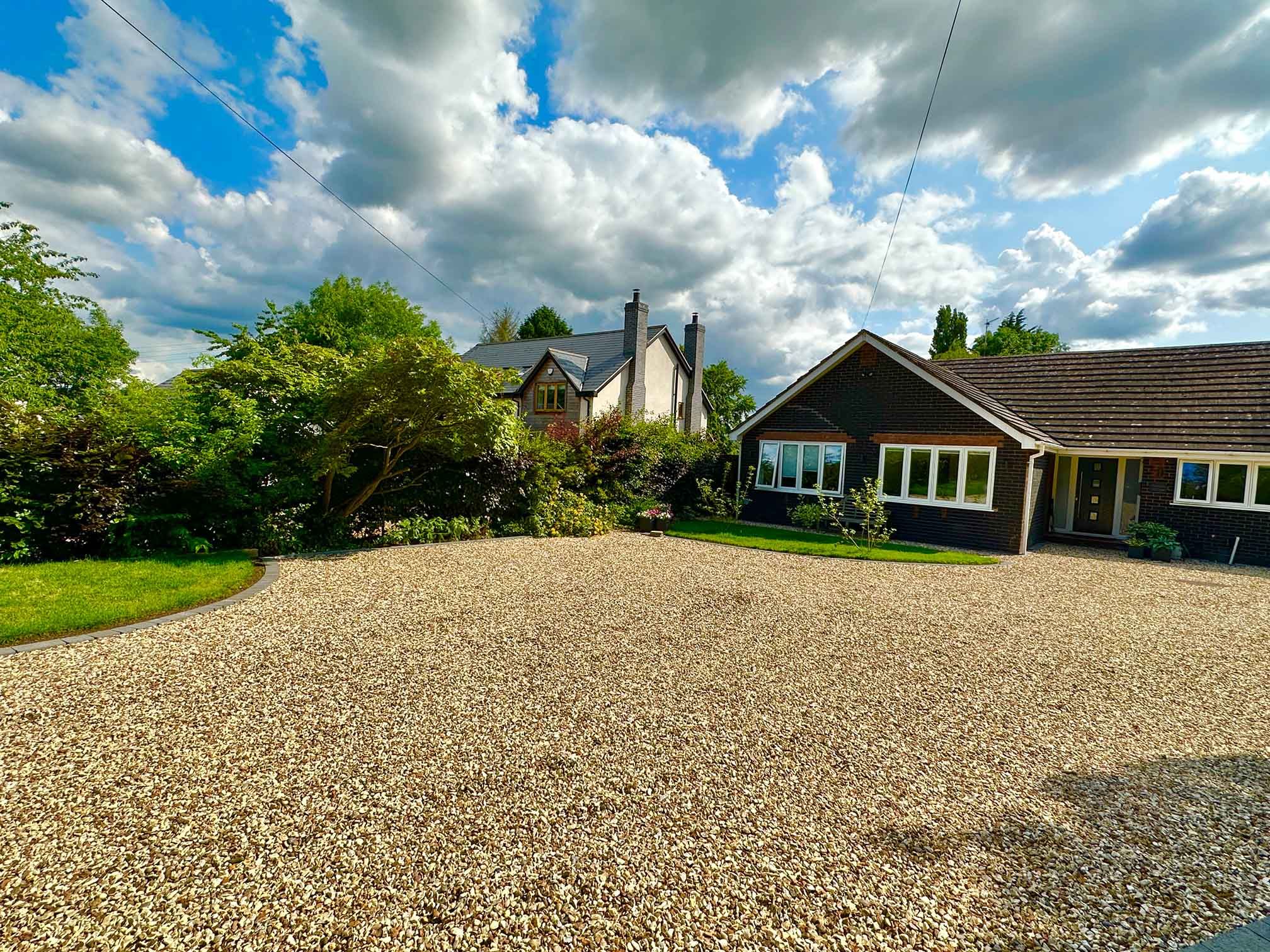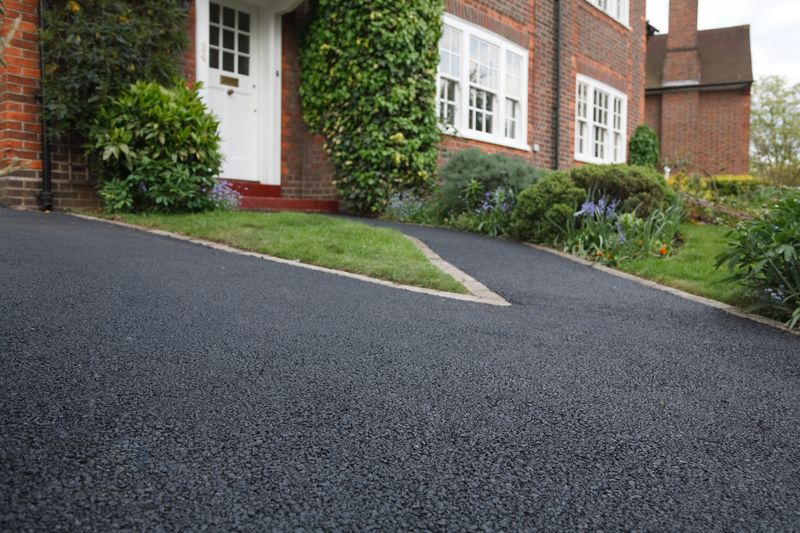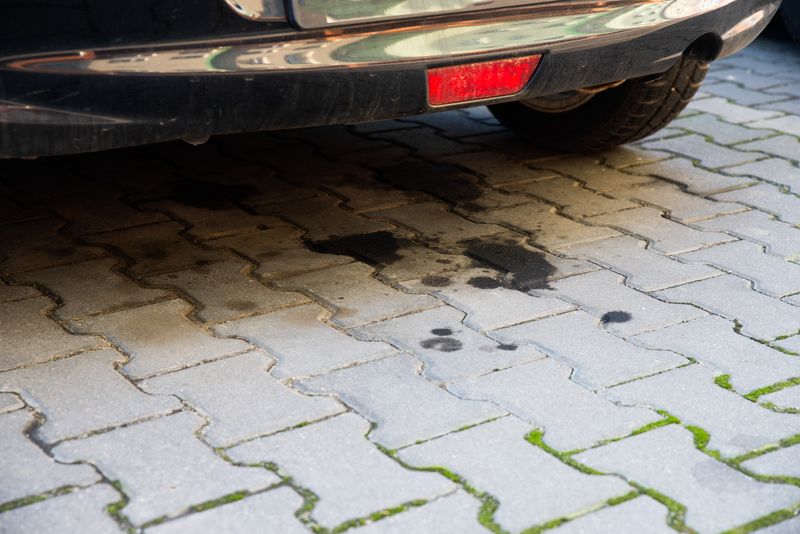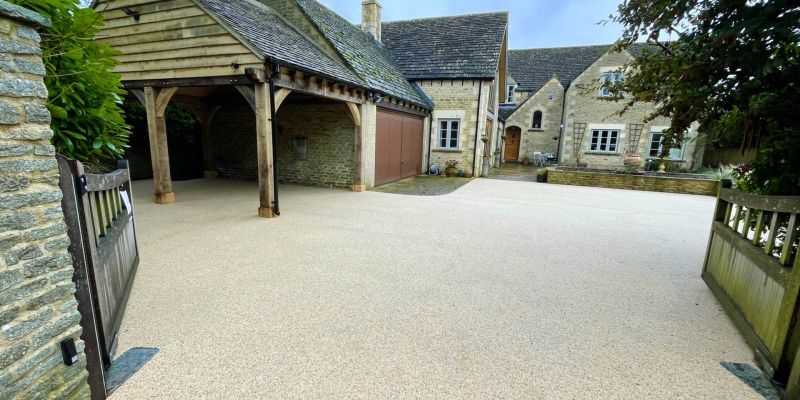
What are the best driveway Materials?
Blog
Are you planning to update your driveway? If so, you’ll want to choose the best driveway material for your needs. From tarmac and resin to gravel and block-paving, there are a variety of options available when it comes to choosing driveway material. Each has its own unique set of benefits that can help make your decision easier. In this blog post, we’ll explore the different types of driveway materials and their advantages so you can choose the one that works best for your property.
Overview of the best driveway materials
Firstly, let's take a look at the different driveway materials that are generally available.
Tarmac:
Tarmac is a popular choice for driveways due to its affordability and durability. This driveway material is easy to install and maintain, making it ideal for those looking for a cost-effective solution. Tarmac also offers superior grip compared to other materials, which makes it well-suited for areas that experience bad weather or high levels of rain.
Resin:
Resin driveways are becoming increasingly popular due to their contemporary look and low-maintenance requirements. The driveway material is also highly durable, which makes it a great option for those looking for a longer-lasting driveway solution. Resin is available in a range of finishes, such as gravel, quartz, and even grassed varieties.
Gravel:
Gravel is a cost-effective and attractive option for driveway material. It is easy to install and maintain, as well as being resistant to water damage. Gravel driveways tend to be quite noisy when driven on but can be softened by adding paving stones or grass between the gravel sections.
Block-paving:
Block paving is an attractive option for a driveway material as it is easy to lay and comes in a range of colours and designs. This driveway material is also quite durable, making it ideal for areas with heavy traffic or bad weather conditions. Block-paving is prone to weed growth if not maintained properly, however, so make sure you lay the right type of edging and keep on top of the weeding.
Pros and cons of Tarmac driveways
Pros
Tarmac is an ideal choice for driveways due to its affordability and durability. One of the major advantages of tarmac is that it can be laid quickly, meaning your driveway will be ready for use in no time. Tarmac also offers superior grip compared to other materials, which makes it well-suited for areas that experience bad weather or high levels of rain.
When it comes to driveway options, tarmac may not be the first thing that comes to mind. However, there are many benefits to choosing a tarmac driveway. Firstly, tarmac is incredibly durable and can withstand heavy vehicles without cracking or damage. It is also low-maintenance, requiring only occasional sweeping and occasional resealing. Additionally, tarmac is a great option for those looking for a sleek and modern look for their home, as it has a smooth and uniform finish. Finally, tarmac is a cost-effective option for those on a budget, as it is often less expensive than other driveway materials. Overall, a tarmac driveway can provide an excellent combination of durability, low maintenance, style, and affordability.
- Low Maintenance
- Sleek and Modern look
- Smooth and Uniform Finish
- Cost-effective
Cons
While tarmac driveways are commonly used among homeowners, they do have their drawbacks. One of the biggest cons of a tarmac driveway is its susceptibility to cracking. Over time, the tarmac can become brittle, especially in areas with extreme temperature fluctuations. This can lead to the formation of cracks, which not only look unsightly but can also lead to larger issues, such as water seeping into the driveway's foundation. Additionally, tarmac driveways do not offer much flexibility in terms of design or customization, as they typically come in one colour and texture. For those looking to add curb appeal to their home, a tarmac driveway may not be the best option.
- Can Crack with large temperature fluctuations
- Limited Design choices
Benefits of Resin driveways
Advantages
When it comes to driveways, resin is a great option for those looking for a contemporary look and low-maintenance requirements. This material is incredibly durable, making it an ideal choice for areas with heavy traffic or bad weather conditions. Resin is also available in a wide range of finishes, such as gravel, quartz and even grassed varieties. This allows you to customize the look of your driveway and create a unique aesthetic. Additionally, resin is easy to install and maintain, making it a great option for those who don’t want to spend lots of time and money on upkeep.
Overall, resin driveways are an excellent choice for those looking for a contemporary look that requires minimal maintenance.
- Easy to install and maintain
- Wide range of customizable options
- Incredibly durable
Disadvantages
While resin driveways have become increasingly popular over the years, there are some drawbacks that homeowners should be aware of. One of the main cons is durability. Unlike a tarmac driveway, resin is more susceptible to damage such as cracks and chips. Another factor to consider is cost. Resin driveways can be significantly more expensive than tarmac driveways, which could make them less budget-friendly. Additionally, the installation process of a resin driveway is more complicated and time-consuming than a tarmac driveway. While a resin driveway can provide a beautiful and unique look to a home, it's important to weigh up the pros and cons before making a decision.
- Durability
- High-cost
- Time-consuming install
Advantages and disadvantages of gravel driveways
Advantages
Gravel is a great option for driveways due to its low cost and attractive appearance. It is easy to install and maintain, as well as being resistant to water damage. Gravel also offers superior grip compared to other materials, which makes it ideal for areas that experience bad weather or high levels of rain. Additionally, gravel driveways are durable and can last for many years with proper maintenance.
When it comes to deciding what type of driveway to install on your property, many automatically think of a tarmac driveway. However, there are several advantages to choosing a gravel driveway over its paved counterpart. Firstly, gravel driveways are significantly more affordable to install than tarmac ones. Additionally, they require less maintenance as they don't crack and can easily be replenished with new gravel over time. Gravel driveways also provide better drainage, reducing the risk of water damage to your property. And lastly, let's not forget about the charming rustic look that a gravel driveway can add to your home's aesthetic. So, before you default to a tarmac driveway, consider the benefits and unique charm of a gravel one.
- Very Affordable
- Less Maintenance
- Drainage
Disadvantages
One of the main disadvantages of a gravel driveway is that it can be quite noisy when driven on. Additionally, if not maintained properly, gravel driveways are prone to weed growth between the stones.
While gravel driveways may seem like a cost-effective and low-maintenance option, they come with their fair share of disadvantages. One major issue with gravel driveways is their tendency to shift and migrate, causing an uneven and bumpy surface. This can make it difficult to drive and even damage vehicles over time. Additionally, gravel driveways require frequent topping-off and level adjustments, adding to the maintenance expenses. In comparison, a tarmac driveway provides a smooth and stable surface, making it much easier and safer to drive on. While it may be initially more expensive than a gravel driveway, a tarmac driveway will likely save money in the long run due to its durability and lower maintenance needs.
- Require addition of new gravel
- Weed Growth
- Noisy
Why consider a Block Paving driveway?
If you're in the market for a new driveway, you may want to consider block paving instead of the traditional tarmac option. Not only does a block-paved driveway offer a more visually appealing look, but it also offers greater versatility in terms of design choices. With a variety of shapes, colours, and sizes available, you can create a truly unique look that complements your home's aesthetic. Additionally, block paving is incredibly durable and long-lasting, making it a great investment in the value of your home. So if you're tired of the dull and uninspired look of a tarmac driveway, consider the many benefits of block-paving.
One key benefit is its durability. Unlike tarmac, which can crack and degrade over time, block-paving is made up of individual bricks that can withstand heavy use without deteriorating. Additionally, block-paving offers a wider range of customization options, from different colours and patterns to different types of stone. This means that you can create a unique look that perfectly complements your home's style. Whether you're looking to increase the value of your property or simply improve its curb appeal, block paving is a great option to consider.
While block paving may seem like an attractive and durable choice for your driveway, it's crucial to consider the disadvantages before making a decision. One of the main drawbacks is the potential for weeds to grow between the blocks over time. This can lead to not only an unsightly appearance but also cause damage to the driveway. In addition, block-paving can be a more expensive option compared to alternatives such as a tarmac driveway. It requires skilled labour and special equipment to install properly, which can result in higher costs. So before committing to block-paving, it's important to weigh the pros and cons and consider other options.
Considerations for choosing the best material for your driveway
When choosing the material for your new driveway there are a few main considerations you should think about:
- Budget/Cost
- Required Maintenance
- Duration/Durability
- Aesthetics
- Climate/Weather Conditions
Depending on your particular needs and circumstances, any of the materials discussed in this article could be a great fit. Before making a decision, consider how each option will affect your budget, the amount of maintenance it requires, its longevity, its looks, and how it will hold up to the climate and weather conditions. With so many materials to choose from, there is sure to be one that meets all of your needs!
Summary
Ultimately, the choice between a tarmac driveway, resin driveways, gravel driveways, or block paving will depend on your budget, aesthetic desires, and maintenance requirements. Tarmac driveways are generally more cost-effective than other options and provide a smooth surface for driving. Resin driveways are the most versatile choice, offering a range of design options and requiring minimal maintenance. Gravel can create an attractive rustic look while offering superior grip in wet weather. And lastly, block paving offers a wide range of customization possibilities but may require more frequent upkeep.
No matter what driveway material you choose, make sure you take the time to do some research and shop around for the best deal. Having a good-quality and long-lasting driveway is an essential part of your home, so it's important to make sure you get it right! Good luck with finding the perfect option for your property.
